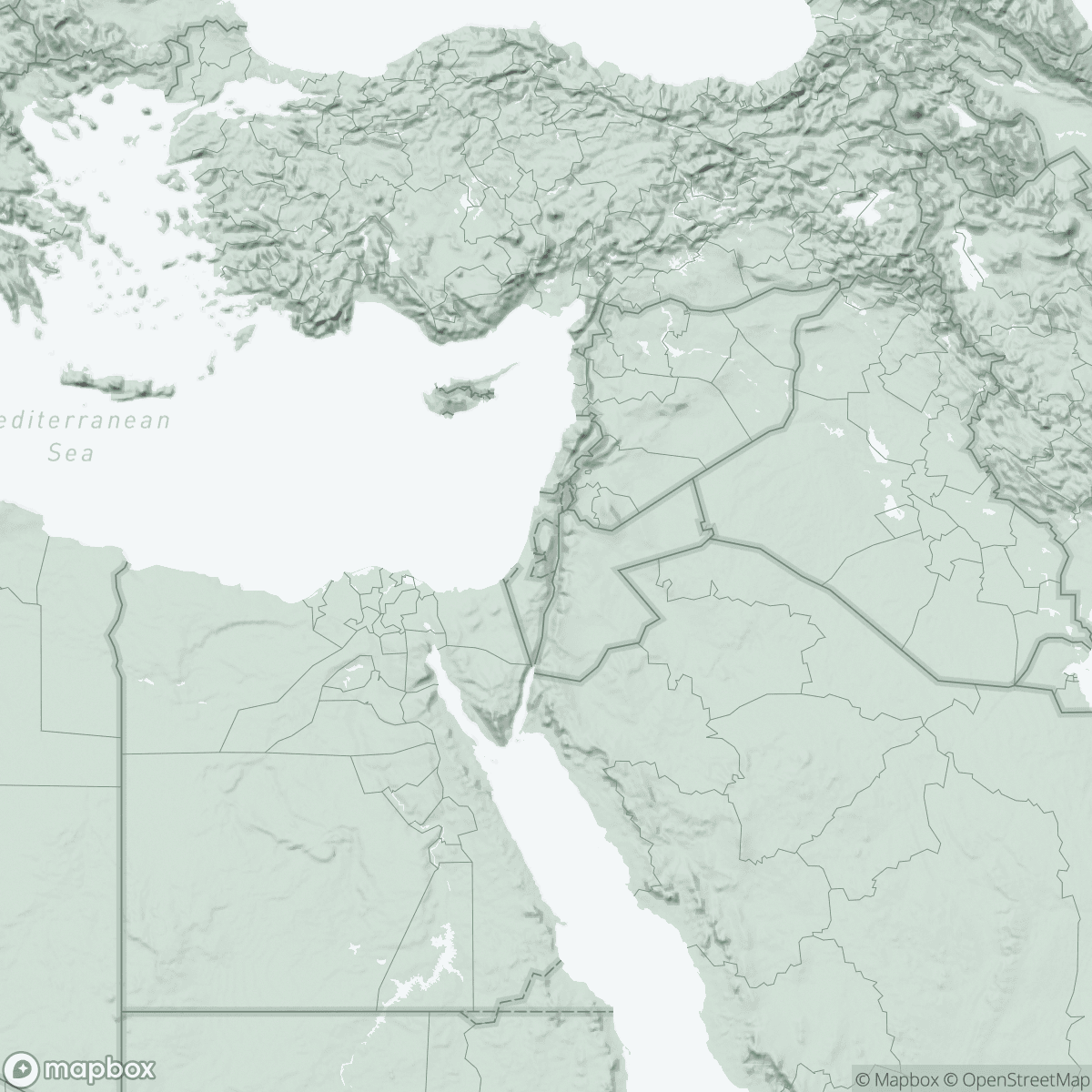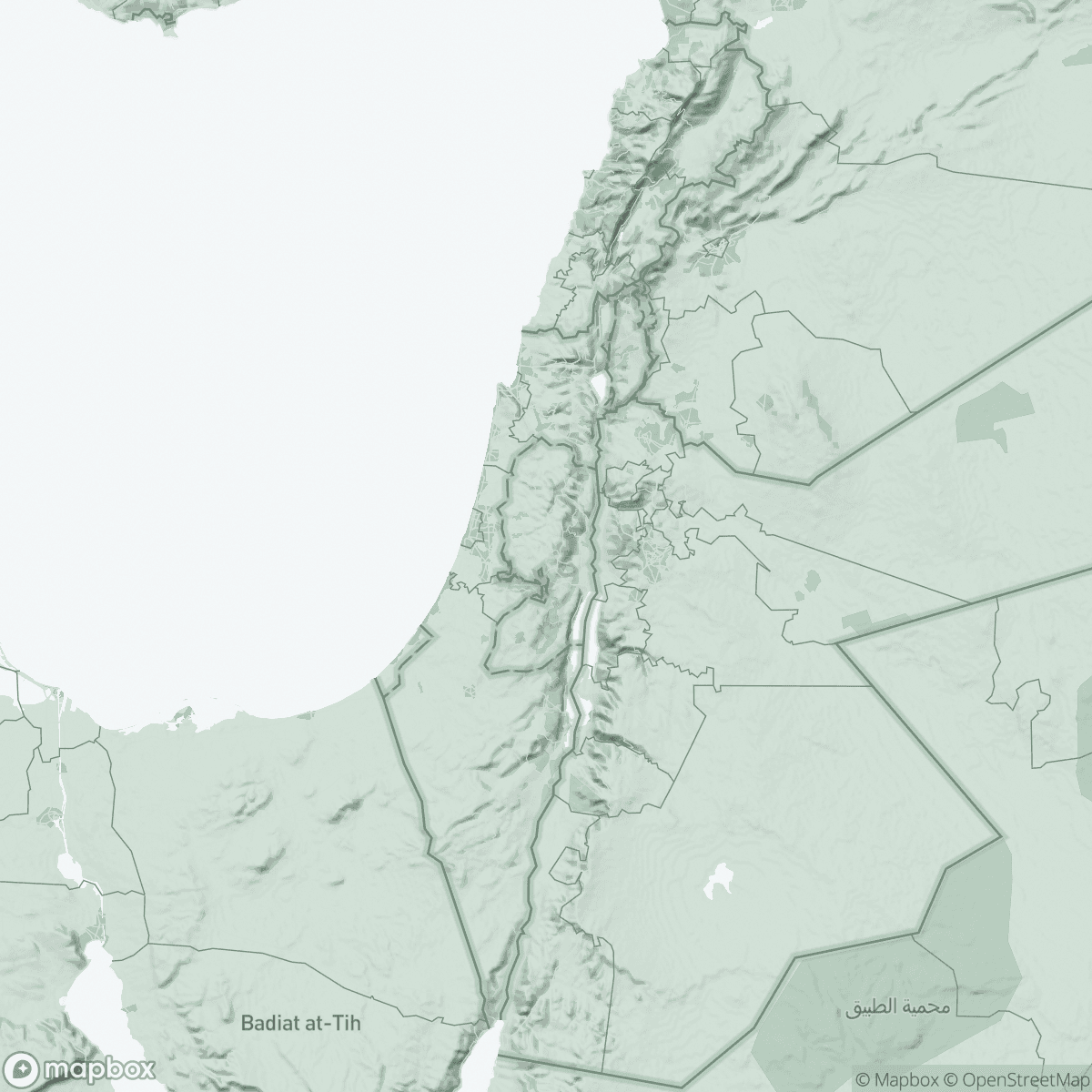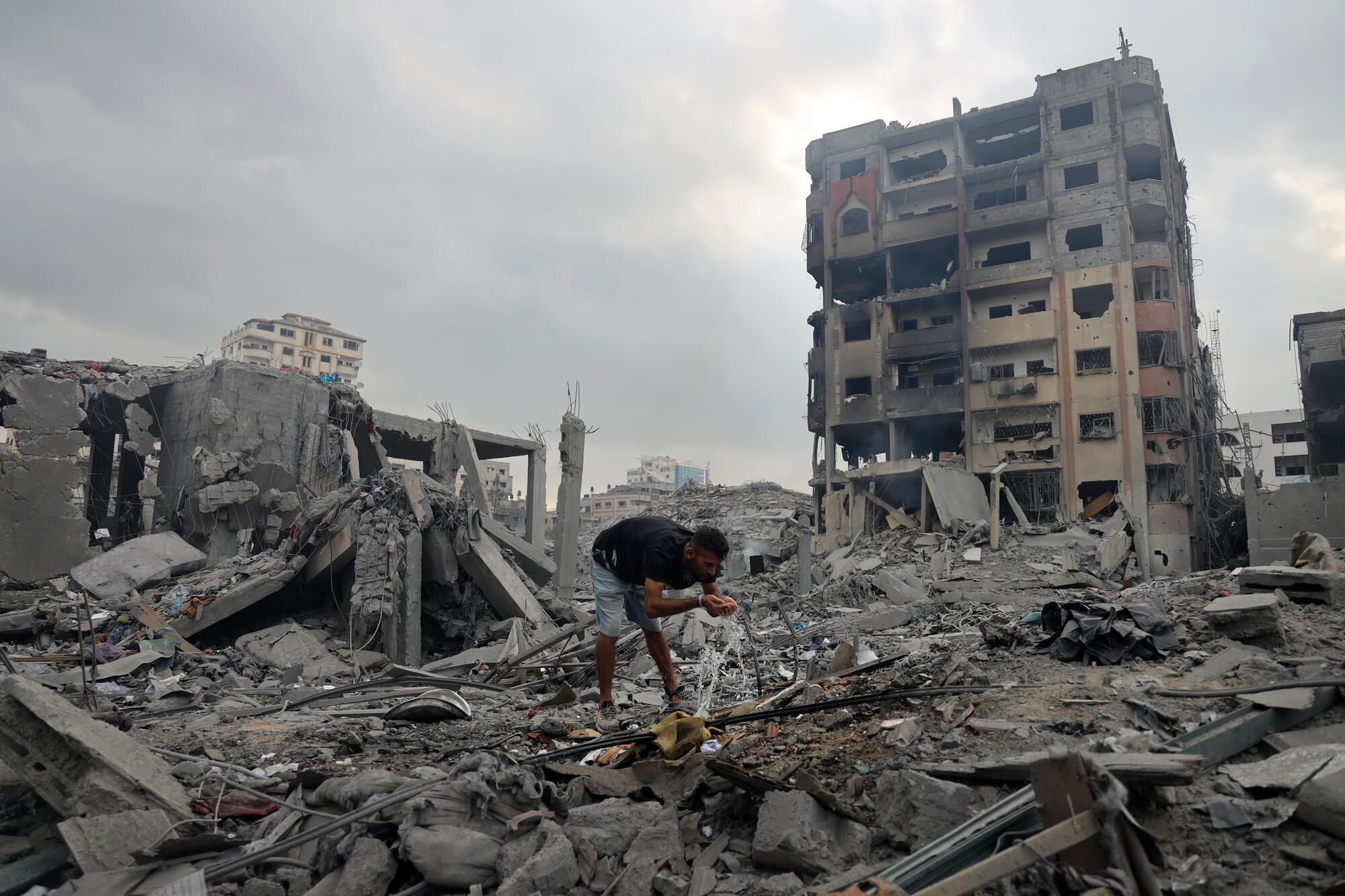
War in Middle East
Last updated January 30, 2026
The situation in Gaza has been described by our teams as "apocalyptic."
Between October 7, 2023 and August 31, 2025, more than 64,000 Palestinians have been killed, including more than 18,000 children, and another 170,000 have been injured, according to the WHO.
A state of famine has been officially declared in the Gaza governorate by the UN. The latest IPC analysis indicates that malnutrition threatens the lives of 132,000 children under five, including 41,000 severe cases, double the number recorded in May 2025.

Gaza: our answers to your questions and allegations about MSF’s work
The situation in Gaza —
From October 7, 2023 until August 20, 2025, the Ministry of Health reported the deaths of at least 62,122 Palestinians in Gaza, and indicated that more than 156,758 others were injured (OCHA).
Since 18 Match, Israeli forces have been carrying out widespread attacks that disproportionately impact civilians. Palestinians in Gaza are suffering each day from Israel’s all-out military campaign, which is now accompanied by the misery of an inhumane siege.
Gaza City and the North governorate of Gaza are almost completely destroyed, with no available essential services. Over half a million people have returned to the north of Gaza since the initial ceasefire, returning to neighbourhoods and homes that have been reduced to ashes. Hospitals have been razed. People are settling on the rubble of their homes with no other shelter. There is a worrying lack of health structures, water, and other essential services. People are being pushed further into a state of total desperation.
The Israeli forces have dismantled the health system and have left people without, or with very difficult, access to medical care. Out of 36 hospitals in Gaza, 18 are partially functional. As it stands, the very few hospitals and medical facilities that remain operational cannot cope with the vast medical needs.
Despite the supposed lifting of the siege on 18 May, only tiny amounts of humanitarian aid have been allowed in. Food distributions, either through the Israeli-US scheme, or people waiting for the tiny number of humanitarian trucks allowed in, are leading to deadly massacres. We are seeing humanitarian aid, and food in particular, being weaponised.
The situation in the West Bank —
The situation is worsening in the West Bank, with increased settler violence and Israeli incursions, particularly in Jenin, Tulkarem and Tubas. This is causing immense suffering and severe obstruction to the provision of healthcare. According to OCHA, between 7 October 2023 and 20 August 2025, 995 Palestinians were killed in the West Bank, including 210 children.
A military operation called “Iron wall” was launched by Israel on 21 January 2025, intensifying demolitions and displacement in Jenin, Tulkarem, and Nur Shams camp. It’s estimated that between January 2024 and April 2025, at least 41,270 Palestinians were displaced across the West Bank.
People lack water, fuel and electricity. MSF is committed to staying and supporting residents, despite the restrictions on movement caused by insecurity.
Severe movement restrictions imposed by Israeli forces across the West Bank are making every journey complicated, whether to go to work, visit relatives, or seek medical care. Moving in the West Bank is characterised by road closures, prolonged delays at checkpoints, and the installation of new gates at village entrances.
Want to learn more ?
MSF response in Gaza and the West Bank
Our teams provide surgical support, wound care, physiotherapy, maternal and pediatric care, primary health care, immunization and mental health services, and water distribution services.
Between October 7, 2023 and November 22, 2025, MSF teams in Gaza provided:
outpatient consultations
emergency presentations
diarrhea cases treated
surgical interventions
inpatients admitted
Prenatal consultations
deliveries
Individual mental health sessions
Consultations for non-communicable diseases
— Our staff in Palestine
Data as of September 30, 2025
locally hired staff
international mobile staff
Since October 7, 2023, 15 MSF staff have been killed in Gaza.
Data as of October 6, 2025
— Our operations on maps

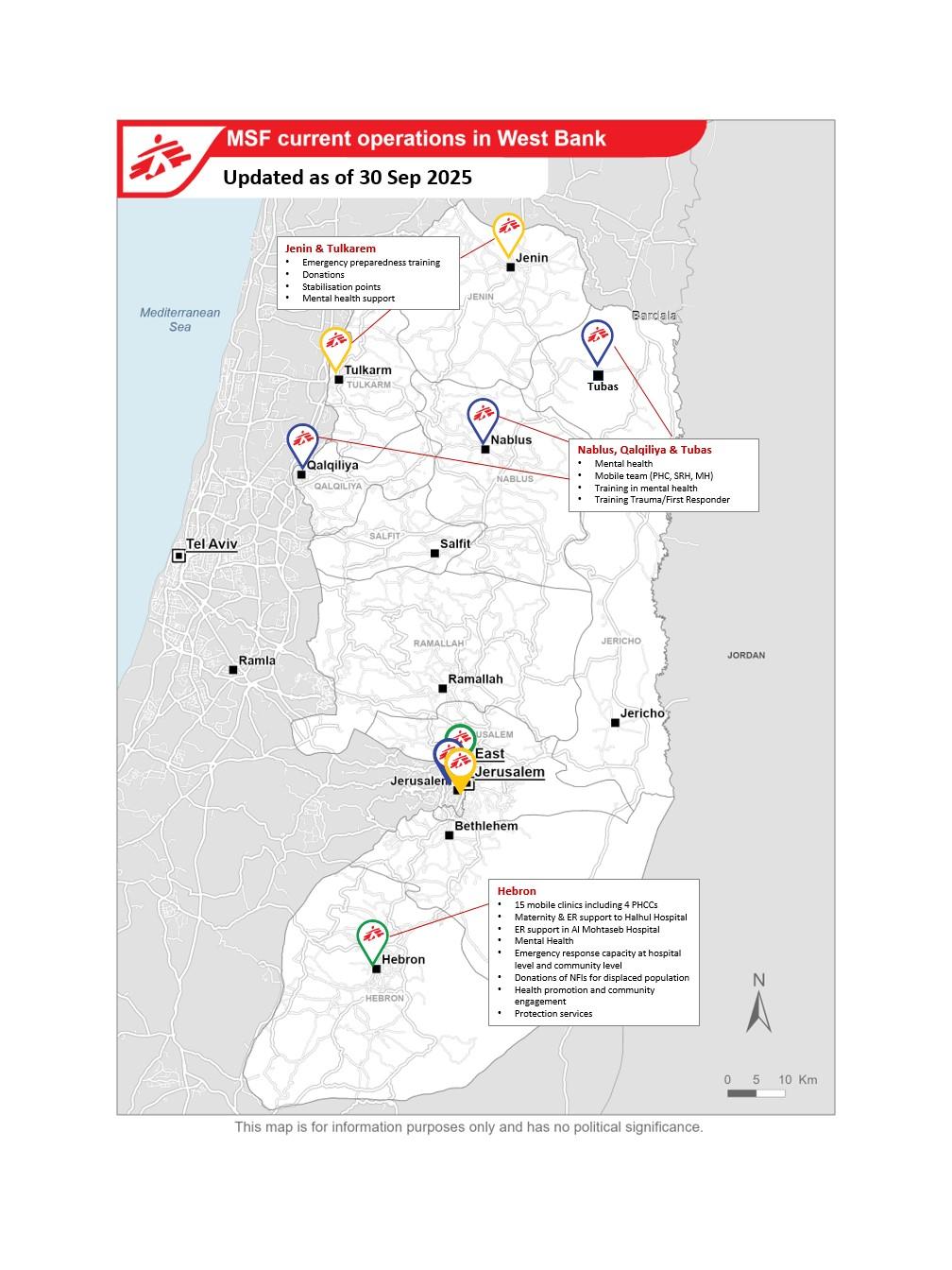
MSF in the region
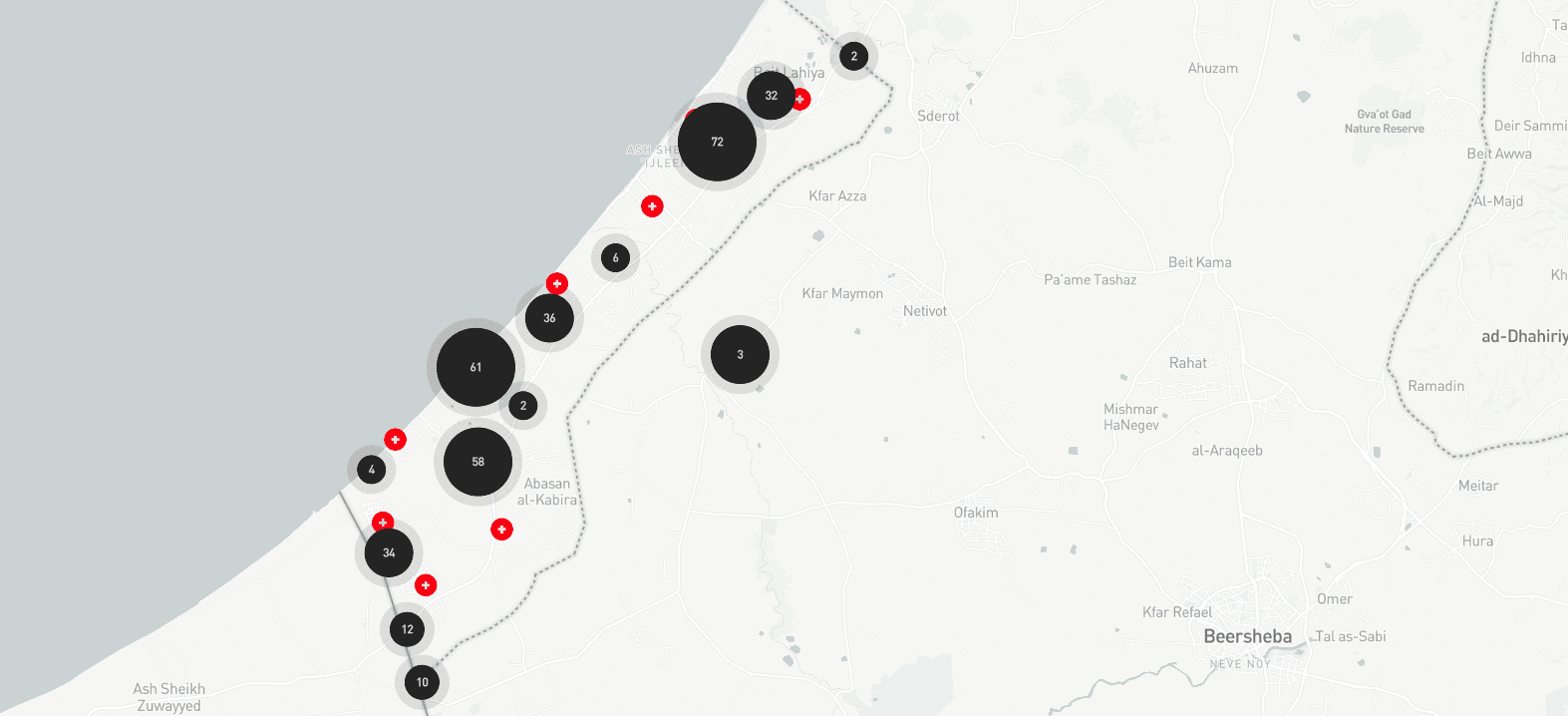
Gaza: "Inside the war"
This interactive feature compiles information and testimonies collected by Médecins Sans Frontières teams between 7 October 2023 and 1 February 2025, during the all-out war waged by the Israeli army against the people of Gaza following the deadly attacks carried out by Hamas in Israel.
Extend your solidarity with those who need it the most
Whatever your means, there are several ways you can help MSF in its actions:
- Join our community
- Follow us on the networks and share our publications: Facebook / Instagram
- Make a one-off donation
- Make a monthly donation

Where do my donation go?
Médecins Sans Frontières is audited every year by an independent, authorised body. More than 85% of our money goes straight to the field where the needs are. We are committed to being completely transparent in order to retain the trust you place in us every day. Thanks to your generosity, we can decide independently what action we need to take for the most vulnerable people, and respond efficiently to their needs. For more details, please see our commitments on financial transparency
Make a donation with Payconiq
#1. Scan this code with your Payconiq App.
#2. Indicate the amount of your donation.
#3. Validate your donation.
By making a donation via Payconiq, your donation will be allocated to all Médecins Sans Frontières projects, where the needs are greatest.


